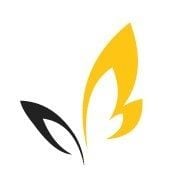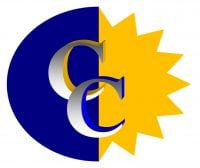Turning Point
Drug Rehab Center in Fayetteville, Georgia
- Opioid Addiction
- Dual Diagnosis
- Drug Addiction
- Alcoholism
Turning Point in Fayetteville, Georgia is a state-licensed and nationally accredited recovery center that provides evidence-based, individualized services for addiction and substance abuse, including individual, family, and group therapy, psychiatric services, mental health assessments, medications, and case management, as well as support for healthy lifestyles and 12-Step programs.
Multiple patients have reported Turning Point as permanently closed.
Research other rehabs in Fayetteville, Georgia, or get help finding an open facility.
Our experts will find you an alternative facility.
(888) 674-0062 24/7 Free, Confidential, Expert HotlineAbout This Georgia Facility
Turning Point in Fayetteville, Georgia is a recovery center that specializes in providing individuals with outstanding treatment for their addiction and substance abuse needs. Through their mission of innovation, inclusiveness and commitment to providing the ultimate recovery experience, the highly certified and experienced Turning Point team is dedicated to making sure their clients have access to a wide range of services, support systems and resources that will help them on their path to sobriety.
At Turning Point, clients can expect to receive individualized, evidence-based services that focus not only on addiction and substance abuse, but also on the underlying causes of their substance use. Their services include individual, family and group therapy, psychiatric services, mental health assessments, medications and case management. Clients can also receive support in the form of 12-Step meetings, relapse prevention training, healthy lifestyle coaching and recreational activities. Moreover, their team offers case management services that provide personalized support to clients in order to help them transition into healthy and responsible lives.
Turning Point is a state-licensed and nationally accredited facility staffed by a multidisciplinary team of certified professionals trained in addiction and substance abuse. They are accredited by the Commission on Accreditation of Rehab Facilities and certified by the National Association of Addiction Treatment Providers. Additionally, Turning Point has been honored with several recognition awards from various organizations. These recognitions demonstrate their commitment to providing the highest quality of care and treatment to those facing substance abuse and addiction issues.
Genders
Ages
Modality
Additional
Conditions and Issues Treated
Many people who struggle with opioid addiction need to attend specific programs like methadone , Suboxone or Vivitrol clinics.
These types of programs will provide the patient with legal, prescription medications that can help them overcome their cravings for illegal opioids like heroin or fentanyl . If the patient has a chronic condition like Hepatitis C, they must undergo treatment before they can begin taking these medications.
Levels of Care Offered at Turning Point
This center offers a variety of custom treatment tailored to individual recovery. Currently available are Aftercare Support, Drug Rehab, Outpatient, with additional therapies available as listed below.
Outpatient treatment programs provide drug and alcohol addiction treatment through individual sessions with a counselor, group therapy, 12-step meetings, and other activities to help individuals gain sober living skills. Most programs are designed for those individuals who have completed a medically supervised detoxification program and provide opportunities for clients to begin the process of early recovery.
Outpatient programs also offer a level of medical support as needed and psychological backing through therapy. Clients are encouraged to live at home, though there may be some flexibility regarding this requirement based on the circumstances and needs of each patient.
Outpatient treatment is perhaps the most common type of dual diagnosis program available. It does not pose a significant financial burden on patients. However, it is essential to note that outpatient treatment does not provide the support and supervision given in residential programs. Some addicts may need this level of support to maintain their sobriety.
People who have completed a rehab program often need continued support from the addiction treatment team in order to remain abstinent from drugs and alcohol. Aftercare can be beneficial for personal, social, and emotional growth.
Common aftercare options include:
- Individual Therapy – this type of addiction counseling is available on a one-on-one basis. This can be beneficial for people with a high degree of emotional turmoil and a strong desire to overcome addiction.
- Group Therapy – this type of addiction counseling is available in a group setting. This type of treatment can be beneficial for people who are unable to attend regular therapy appointments due to other responsibilities.
- Family Therapy – this type of addiction counseling is available to the family members of addicts. This can be beneficial for people who are unable to fully comprehend what their loved ones are experiencing due to addiction.
Therapies & Programs
Therapy sessions focused on the individual addict can provide much-needed guidance as they work toward overcoming their addiction. These types of sessions typically involve guidance from a therapist, who will help addicts identify and process their feelings and cravings.
During these sessions, addicts may develop plans for coping with the triggers that typically lead to relapse and learn how to avoid those triggers during their recovery process.
If you are looking for drug recovery, couples therapy can be a great option. This type of therapy can help rebuild trust and joy in relationships that may have been damaged by addiction. It can also help reduce the dysfunctional behavior in a relationship that may trigger addiction. A patient’s partner will be involved in the process. They can also benefit from therapy, especially if they are trying to live with an addict.
The main goal of family therapy for drug addiction is to create an environment where communication can occur without judgment, hostility, or blame that often occurs within a family.
Family therapy is a type of group problem-solving that aims to improve communication and relationships between the patient, their family, and sometimes friends. The therapist is with the family as they learn to communicate with each other differently, especially with the addict when s/he is using.
The family can learn to reduce their enabling behavior or rally together and support each other during tough times. The patient also learns how to deal with their addiction and maintain sobriety while interacting with the family.
Different types of addiction treatment services are available. Within this article, group therapy is of interest due to its high success rate compared to individual therapy. Group therapy settings are beneficial because they allow recovering addicts to build a strong support network.
Benefits of group therapy are:
- Reduces feelings of isolation
- Immediate access to social support in the form of fellow addicts in recovery
- Lowers risk of relapse
- Increases rate of sobriety
- Builds coping skills that can be applied to everyday life
Additional Details
Specifics, location, and helpful extra information.
Fayetteville, Georgia 30215 Phone Number(770) 716-7977 Meta DetailsUpdated November 25, 2023
Staff Verified
Patient Reviews
There are no reviews yet. Be the first one to write one.
Fayetteville, Georgia Addiction Information
Prescription opioid use has caused a large increase in the total amount of overdoses in Georgia. Almost 12% of the Georgia population uses illicit drugs each year, and slightly over 3.5% also abuses alcohol at the same time. This does not include those who binge-drink at least once a month, which includes 20% of all Georgians.
In Fayetteville, Georgia, the drug addiction problem is significant. According to recent statistics, about 1,700 admissions to drug and alcohol rehab facilities in Fayetteville in 2012. This means that about 3.5% of the population in Fayetteville abused drugs or alcohol in 2012. There are many different types of drug treatment available in Fayetteville, Georgia. Some common types of treatment include inpatient or outpatient rehabilitation, 12-step programs, and holistic therapies.
Treatment in Nearby Cities
- Woodstock, GA (45.5 mi.)
- Sandersville, GA (101.2 mi.)
- Denver, GA (44.3 mi.)
- Fort Oglethorpe, GA (113.4 mi.)
- Gainesville, GA (69.7 mi.)
Centers near Turning Point
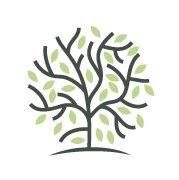
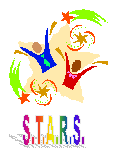
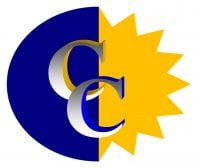

The facility name, logo and brand are the property and registered trademarks of Turning Point, and are being used for identification and informational purposes only. Use of these names, logos and brands shall not imply endorsement. RehabNow.org is not affiliated with or sponsored by Turning Point.

